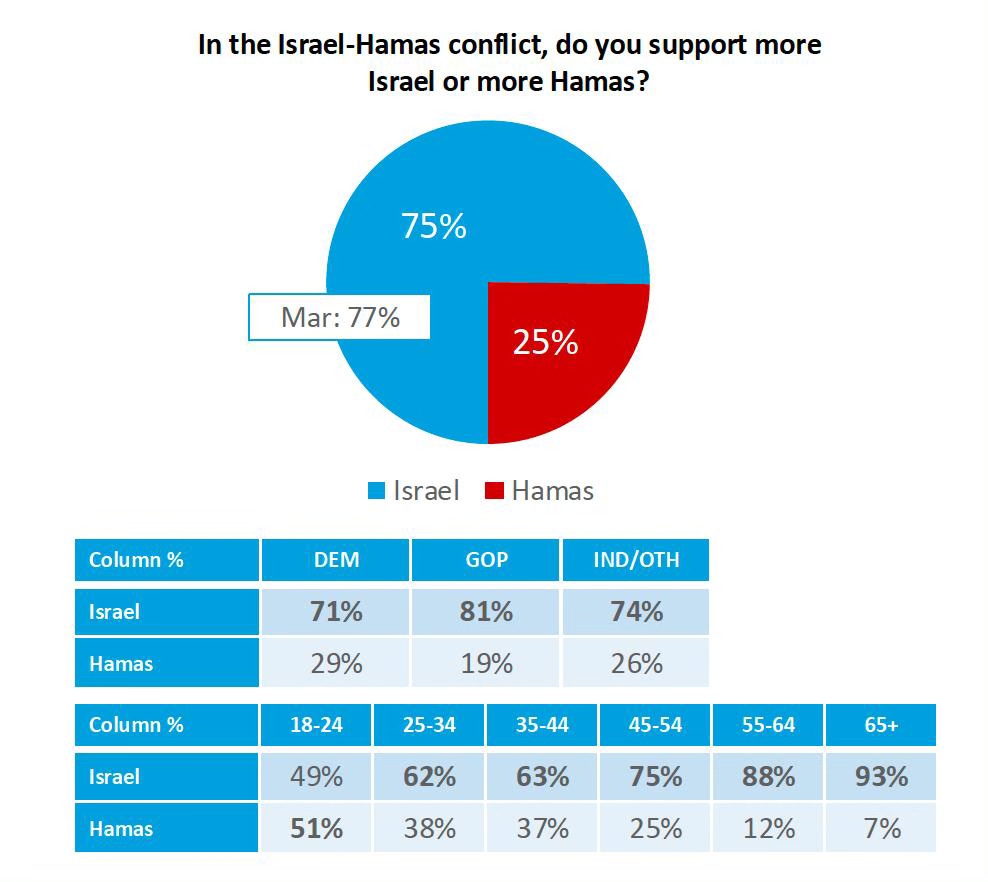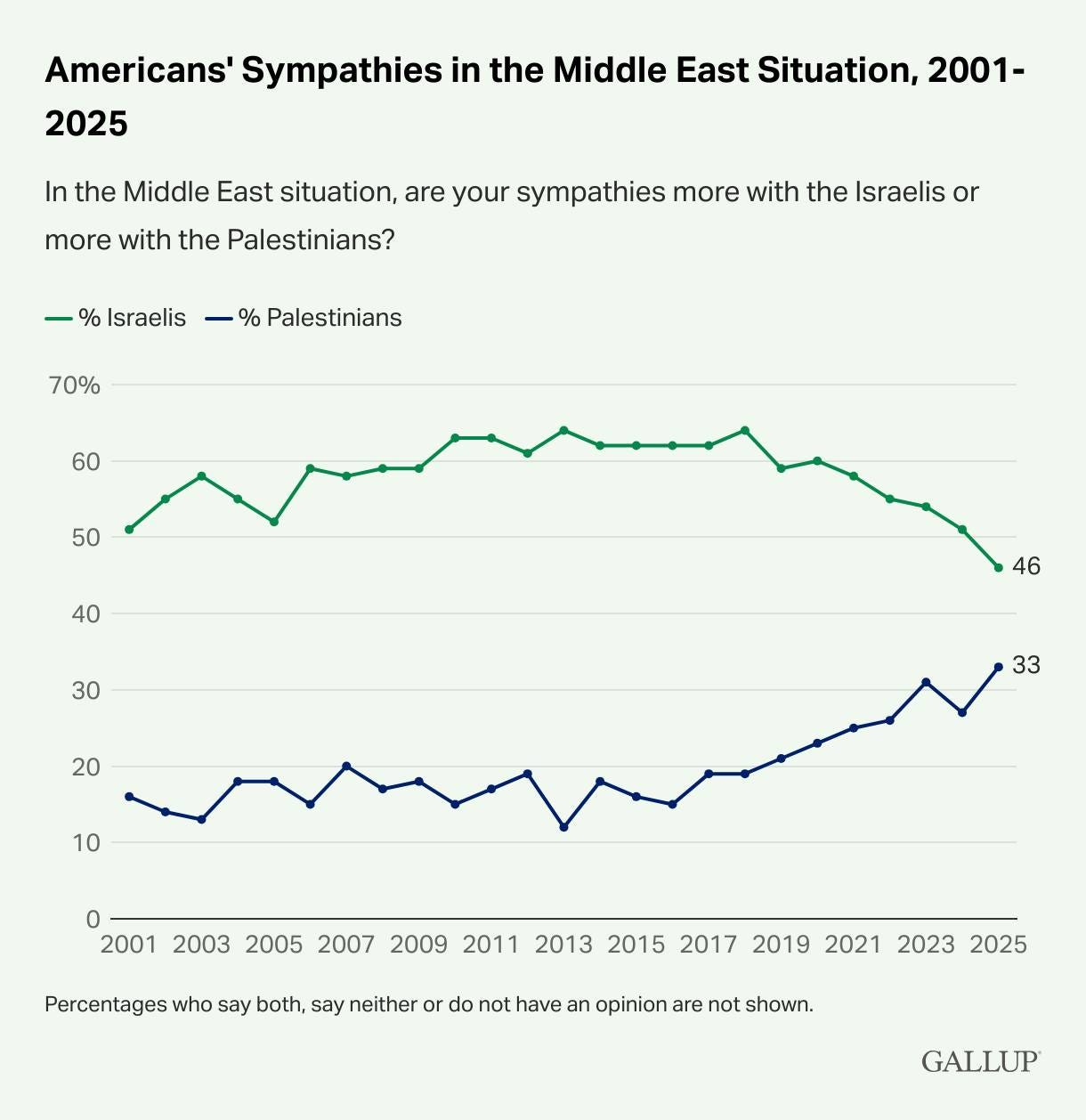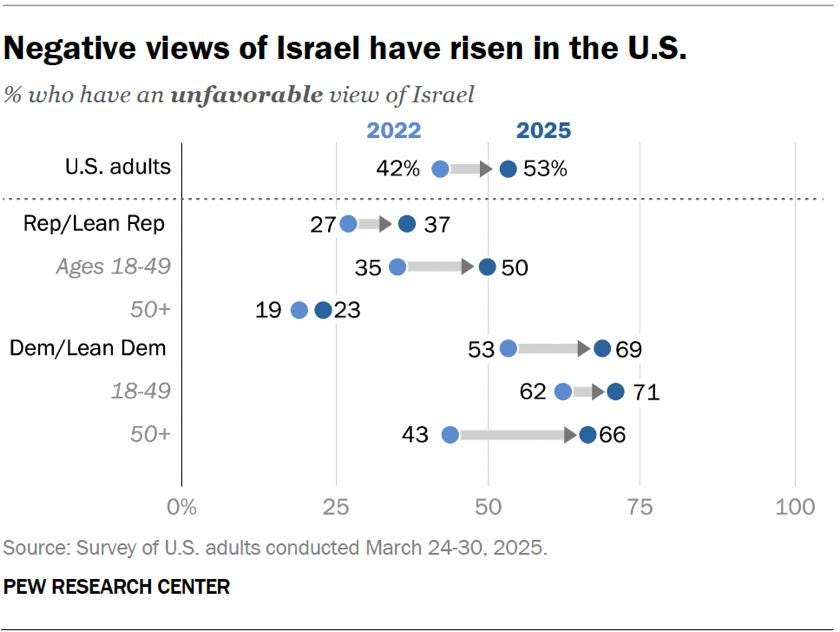Perceptions of Israel: What the Data Tell Us
"Sounding the alarm is one thing, shifting to action is another. We've been hearing the alarm — both in reality in Israel and metaphorically in the Jewish world — for decades. It's time to act."
By Joanna Landau
Tel Aviv
Recent data coming over the transom reflect two snapshots of one bleak reality in terms of perceptions of Israel. Neither bodes well.
We can be envious of how good the other side is, how much money they're investing, and what a head-start they have, but until we take responsibility for our own part in the data that we're seeing — and shift from complaining to doing — we'll see our numbers continue to drop.
The first is the annual Gallup poll that asks about sympathies towards the Israelis and the Palestinians. They've been asking this question for over 20 years (actually much longer, but this data is from 2001). The top green line reflects sympathy towards the Israelis, and the bottom blue line is sympathy towards the Palestinians (or, today, for some — especially young people — “Palestinians" is synonymous with "Hamas").
The good news? Most Americans are sympathetic towards the Israelis. Considering we're at the lowest level of our global image, this is an important reminder of our starting point.
The bad news? Look at the trajectory. Wow. It's just a matter of time before the tables are turned and we lose the majority in America.
The second snapshot is from Pew Research and was published last week. They asked a slightly different question, about Israel (the country) as opposed to Israelis (the people). That's an important nuance. For most countries, perceptions tend to be more negative about the government than about the people. Even countries that are very much revered.
The good news? There is none. I’m sorry. But there is (yet another) indication that our messaging should focus on the Israeli people rather than the State of Israel. Not that we didn't already know this before, but it’s an additional confirmation.
The bad news? Israel is losing its biggest historical ally and the one it depends on most for support, especially during a long and protracted war.
Adding insult to injury, a new Harvard CAPS/Harris poll reveals that Americans’s support for Hamas has edged up. We’d gone from one in five Americans who support Hamas to one in four. And in the 18-24-year-old and 25-34, respectively, 51 percent and 38 percent support Hamas. This is just as much a problem for America as it is for Israel.

These are short and long-term issues we’re facing. Israel’s over-reliance on the current leadership of America is very dangerous, because it's so unstable and precarious, as we're seeing with other issues this administration is focusing on (tariffs, immigration, climate, health, reproductive rights, etc.). In the long run, we must face the fact that the leaders of tomorrow harbor mostly negative views of Israel (and they don't think much better about the Israeli people either).
So, what to do? Sounding the alarm is one thing, shifting to action is another. We've been hearing the alarm — both in reality in Israel and metaphorically in the Jewish world — for decades. It's time to act.
I don't think Israel's current government is minded to it right now. So it'll have to be a non-governmental effort. There are many discussions going on right now, and I shared my suggestions at the recent 2025 Jewish Funders Network Conference in Nashville to a full room. This is clearly a hot topic in our community. As it should be. Stay tuned.
Whatever emerges — there's no time to waste.
JOANNA LANDAU is a place branding expert and coauthor of the international bestseller Ethical Tribing: Connecting the Next Generation to Israel in the Digital Era.
From unpacking history and politics to navigating the nuances of family and personal relationships to finding the human angle on sports and entertainment — plus our unsparing take on what’s happening in the Jewish world — the canvas at JEWDICIOUS is limitless! JOIN US!!







